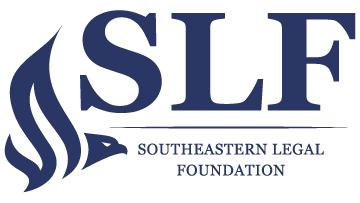Southeastern Legal Foundation filed a federal lawsuit against the FBI for refusing to produce records regarding alleged lying, misleading, and withholding of information from the FISC to obtain the warrants to spy on the Trump campaign. The lawsuits are filed just as SLF’s client John Solomon’s breaking story revealed that DOJ and FBI attorneys not only knew that the Steele Dossier was questionable, but had in fact debunked nearly every assertion made by Steele and knew that the dossier contained unverifiable and false information.
Read More
Attorneys play an integral role in the execution of our system of laws. As officers of the court, licensed lawyers voluntarily submit to regulatory governance under strict codes of conduct administered by quasi-governmental bodies charged with enforcement of those codes. On top of that, courts maintain and enforce their own rules to protect the integrity of the judicial system. While no rule is more important than another, an attorney’s duty to be open and honest with the court at all times must always remain at the forefront and should guide every action an attorney takes. This is true not only for private attorneys, but especially for our country’s government attorneys. President Bill Clinton’s surrender of his law license on his last day in office, followed by disbarment by the U.S. Supreme Court for his violations of the Rules of Professional Conduct, remind us that no one is above the law.
“The records sought by SLF in its FOIA request are necessary to help circle the square of information that we believe exists that the FISC may have warned powerful government attorneys in positions of high trust that their actions during the FISA warrant applications related to Carter Page and other American citizens,” said Kimberly Hermann, SLF general counsel.
As John Solomon reported, we know that high-ranking government officials met with Christopher Steele in October 2016 and that the federal government knew that Steele was simultaneously working for both the FBI and Hilary Clinton’s campaign to dig up dirt on then-candidate Donald Trump. The conflicts concerned one State Department employee so much that she flagged them in a typed memo and handwritten notes exactly 10 days before the FBI used the Steele Dossier to secure the Carter Page FISA Court application. This begs the questions: What else did the government attorneys know? What else did the government attorneys hide from the FISC? The American public deserves answers and SLF is committed to getting them.
The Federal Bureau of Investigation, by and through the U.S. Department of Justice, today sent SLF a letter maintaining “no relevant documents” in the ongoing litigation described below – despite the release this week of the DOJ Inspector General report on FISA abuse and the Carter Page surveillance investigation detailing 17 counts of critical ‘errors and omissions’ that reveal wrongdoing and lapses in leadership and procedures throughout the FBI FISA process.
